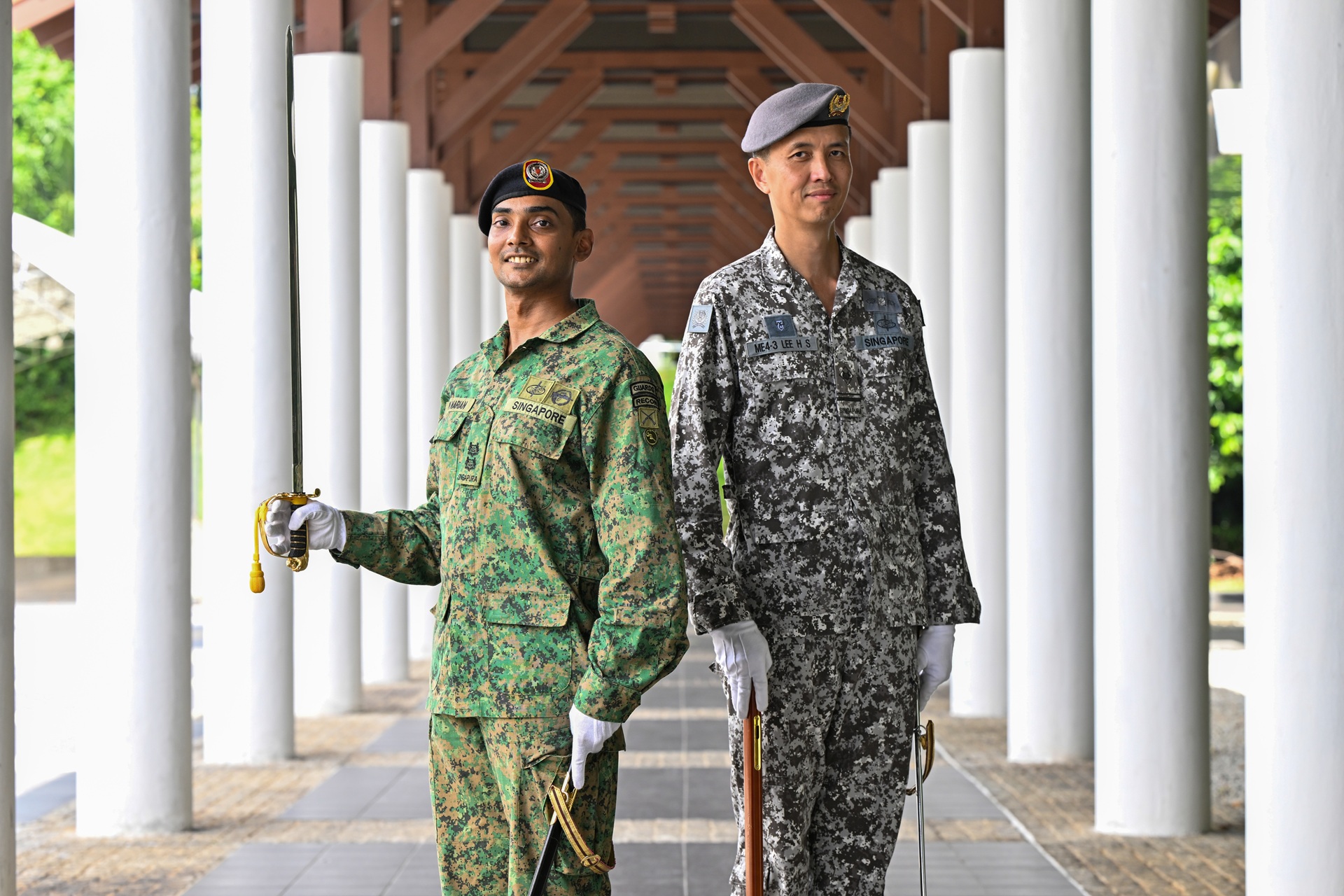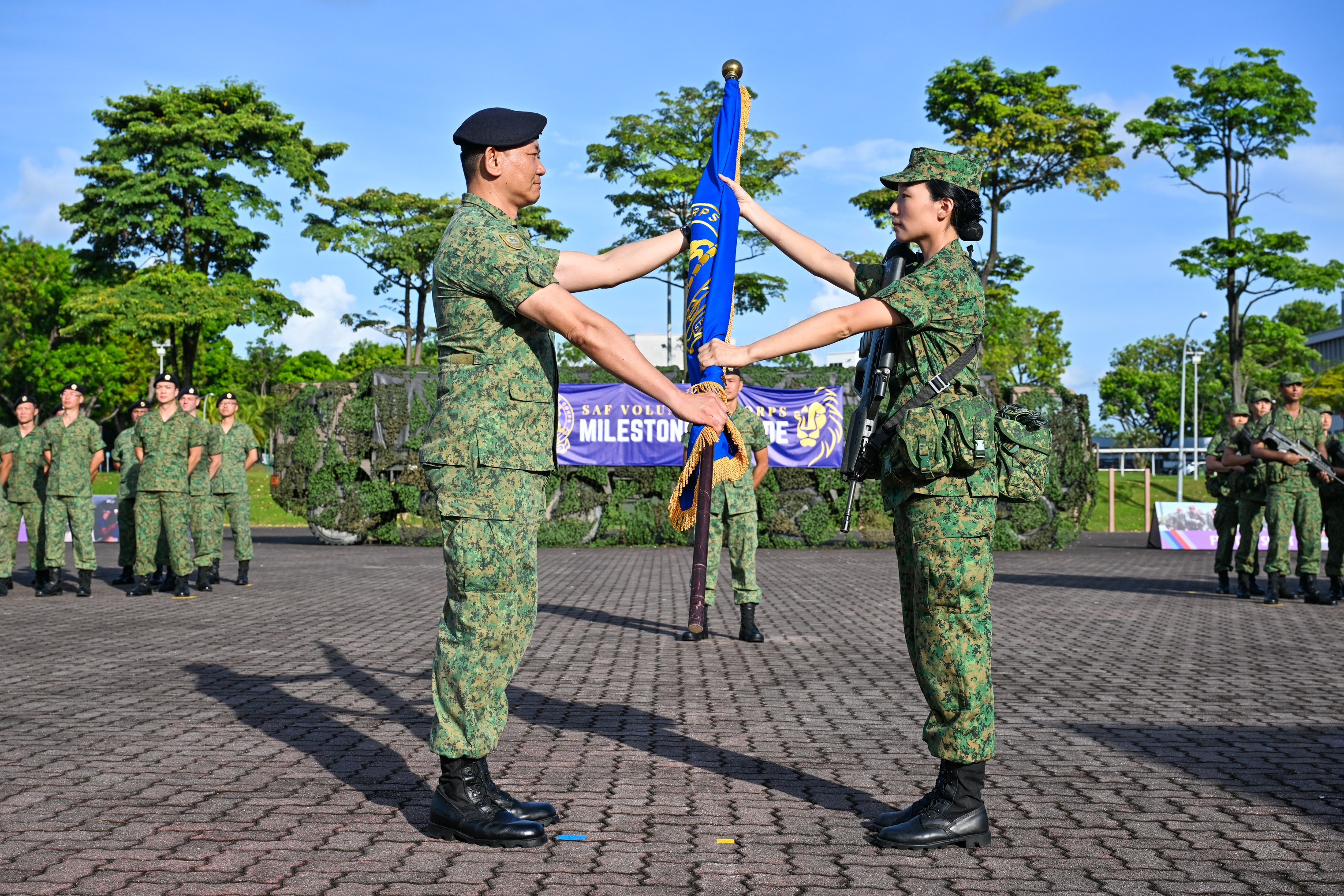CURBING DESTRUCTION
PHOTO // PIONEER Photographers
Out in the South China Sea, a vessel suspected of smuggling WMD-related materials has been discovered by the Republic of Singapore Navy's Information Fusion Centre (IFC). A multinational task force comprising maritime and air assets is pulled together to locate, track and intercept it.
When the ship's captain refuses to cooperate, board-and-search teams from the Republic of Korea, Singapore and the United States (US) intercept and board the ship to check for contraband items.
At the same time, the Special Operations Task Force (SOTF) from the Singapore Armed Forces (SAF) ropes down from the Republic of Singapore Air Force's Super Puma helicopters to storm the ship.
Back at Changi Naval Base, a container suspected of carrying WMD-related materials arrives at port and the SAF Chemical, Biological, Radiological and Explosives (CBRE) team is activated. Once the scans and retrieval of WMD-related materials are completed by the CBRE team, officers from Singapore Customs proceed to seal the container for further investigations.
Joint maritime interdiction
These operations were part of Exercise Deep Sabre 2016, a multinational Proliferation Security Initiative (PSI) exercise hosted by Singapore. Held from 27 to 30 Sep, the exercise involved more than 800 personnel from 21 countries including Canada, Germany, Japan, the Republic of Korea, Laos, New Zealand, the United Kingdom and the US.
With more civilian-use trade goods having military applications, it is now easier for both state and non-state proliferators to use legitimate channels to mask their illicit trade of WMD-related materials.
To combat the evolving proliferation of WMDs, countries must constantly develop innovative and effective methods to address these challenges, said Senior Minister of State for Defence and Foreign Affairs Dr Mohamad Maliki Bin Osman at the opening ceremony of the exercise on 27 Sep.
"The Whole-of-Government approach to counter-proliferation requires coordinated efforts among enforcement, intelligence and military agencies, port and civil aviation authorities, and industry players," he explained.
Dr Maliki also noted that no one state has the resources and ability to single-handedly address this transnational and multifaceted problem, and that Singapore recognised the need to contribute in the fight against the proliferation of WMDs.
Info-sharing and dissemination
The front line of this fight is information-gathering, for which the IFC is specially designed. An information-sharing hub, the IFC fuses, sense-makes and disseminates accurate and timely maritime security information.
With linkages to 71 operations centres from 38 countries, this regional maritime security centre provides actionable information to cue responses by regional and international navies, coast guards and other maritime agencies in dealing with maritime threats and incidents such as piracy, sea robbery and smuggling.
The IFC also hosts 16 International Liaison Officers (ILOs), including representatives who hail from Australia, Brunei, China, France, Indonesia, New Zealand and the US.
Head IFC Senior Lieutenant Colonel (SLTC) Raymond Ong said that in Exercise Deep Sabre, IFC officers looked out for ships carrying proliferation materials. If a ship was suspected to be carrying certain chemicals, they flagged it out to their counterparts at sea to conduct follow-up searches.
"The IFC will generate target folders (ships with suspicious materials) based on information that we get, as well as verify and share the information with participants so that they can use the information to shape their operations."
Customs control
In the case of the port search, the information received is assessed by multiple agencies. If a container is suspected to contain hazardous materials such as chemical, biological or radiological substances, Singapore Customs notifies the CBRE and Singapore Civil Defence Force (SCDF) teams to be on standby.
While Singapore Customs is the main coordinator for the operation, the CBRE team aids in the detection, identification and extraction of the hazardous materials. The CBRE team also collects samples for analysis if necessary.
The SCDF is on hand to carry out personnel decontamination should anyone be exposed to these materials. Singapore Customs then follows up with the investigation of the offence.
"Exercise Deep Sabre exercises the inter-agency capability and procedures in interdicting shipments suspected of containing WMD materials. So when the cargo berths at port, Singapore Customs will coordinate an inter-agency operation to ensure a safe and successful interdiction of the container," said Singapore Customs Head of Trade Strategy and Security Ooi Chia Miin.
She added that these inter-agency collaborations were essential to ensure success in counter-proliferation operations.
Scan, retrieve, secure
When the cargo reaches port, the CBRE team takes charge in assessing the level of radiation emitting from the container. They use dosimeters, handheld radiation measuring devices, to determine if it is safe to approach.
After confirming the presence of WMD-related materials within, the CBRE team prises the container open. If the radiation readings are too high, the team activates both the Talon Unmanned Ground Vehicle (UGV) and Mobile Explosive Containment Vessel (MECV).
Explaining the roles of the UGVs, Head Chemical, Biological, Radiological and Explosives Data Centre from Headquarters CBRE Defence Group Major (MAJ) Gilbert Foo said that these vehicles allowed the operators to remotely contain the radiological hazard without exposing themselves to excessive radiation.
"The Talon is able to handle any radiological source and safely deposit it into the MECV, hence containing and reducing the radiation coming from the hazard."
After confirming that the cargo is safe to approach, the Singapore Customs officers seal the container to conduct further investigations with the relevant authorities. These include working with scientists from laboratories and agencies like the National Environment Agency, which is the controlling organisation for nuclear substances.
Ramping up efforts
These scenarios may seem highly unlikely to most, but MAJ Foo noted that there is a real possibility of black markets or criminal organisations exploiting the loophole of transporting WMD materials through cargo containers.
"The people with the right means and capabilities could use these materials to create a nuclear weapon," he explained.
This is also why a close inter-agency and multinational partnership is crucial. Through interactions with foreign counterparts like the US Army Pacific and the US Customs and Border Patrol, the Singapore team picked up useful learning points when it came to port searches, such as routinely reviewing and exercising response plans.
This may not be the first time that the CBRE team is working with Singapore Customs and SCDF, but with every collaboration, the trio learns from mistakes and achieves greater understanding with one another.
"Being more familiar with each other's tactics, techniques and procedures helps us develop the operational flexibility to be more prepared for any uncertain scenarios that can potentially crop up," said MAJ Foo.
"It's important that the interdiction of WMD continues to be perfected so that we are ready if it happens."
Where it all begins
Did you know that all this exciting action begins in the IFC? Based in Changi Naval Base, this regional maritime security centre has been collecting, collating and sense-making white-shipping information since its inception in April 2009.
Having the presence of ILOs from 16 countries also quickens the authenticity verification of any maritime information.
Captain (CPT) (Navy) Jean-Rene Degans, an ILO from France, said that whenever information is received, each ILO will verify it with their countries' operations centre to ensure that the information is credible and reliable.
Even though it has only been a mere four months since he was deployed, the 45-year-old was full of praise for the centre.
"Maritime security is building up all over the world and the IFC is the first (of its kind) to be created by Singapore. To be able to gather so many ILOs from many countries is quite impressive."
He added: "As an ILO, I want to help make the system better and provide my experience because I have a better understanding of my country's maritime landscape. This will give the IFC greater global comprehension of what is going on at sea."
Apart from its participation in Exercise Deep Sabre, the IFC hosts various multilateral information-sharing portals and platforms such as the ASEAN Information Sharing Portal, the Western Pacific Naval Symposium's Regional Maritime Information eXchange and the Malacca Straits Patrol Information System.
It is also currently developing a Submarine Safety Information Portal, which will enable partners to share and obtain information for the safe operations of submarines in the South China Sea.
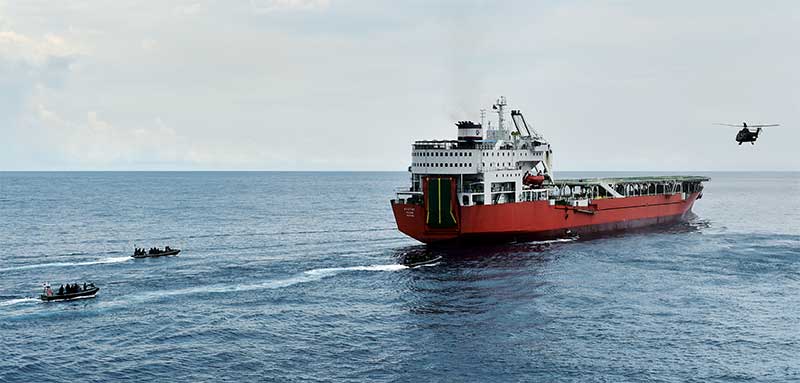

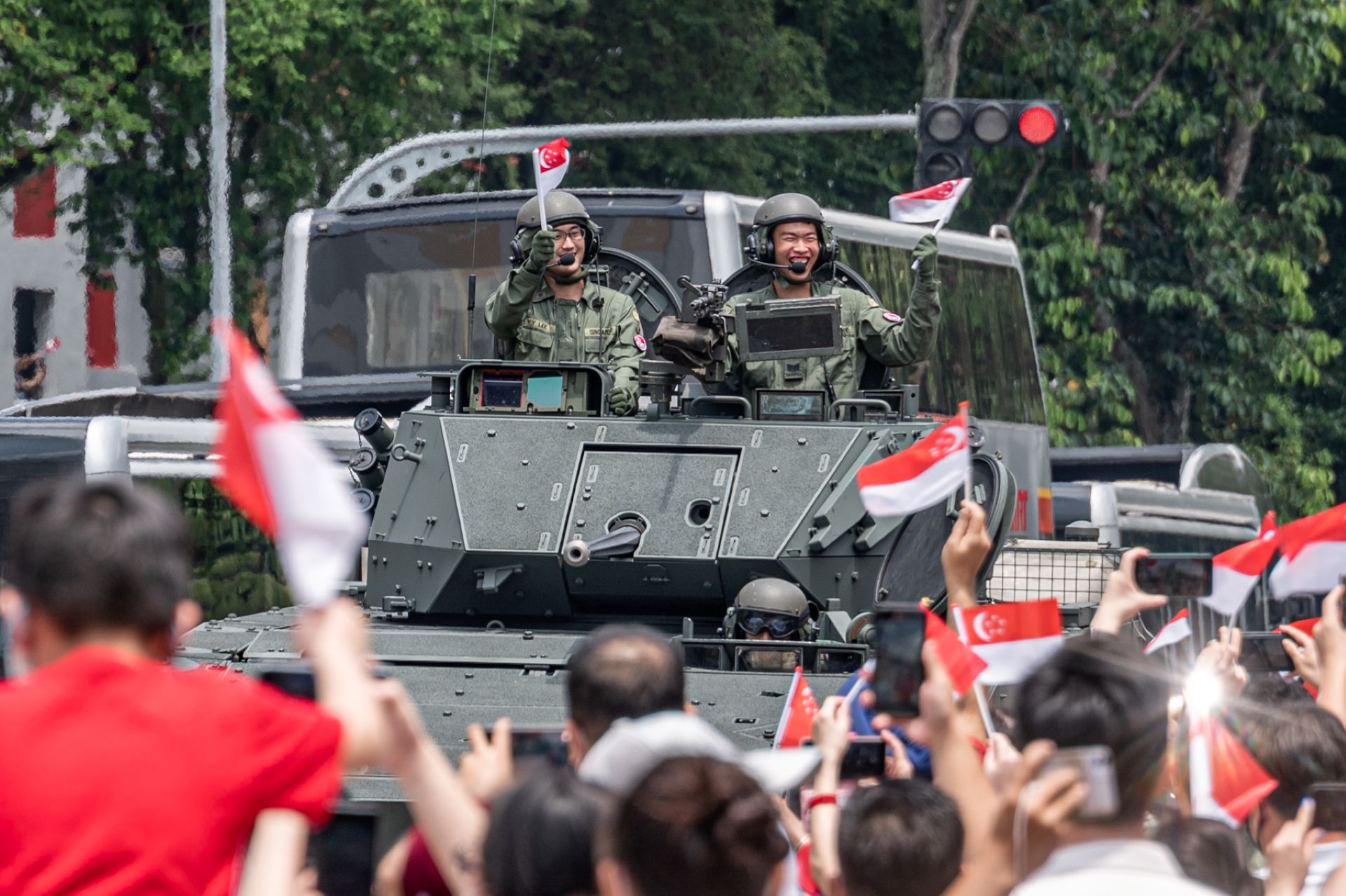

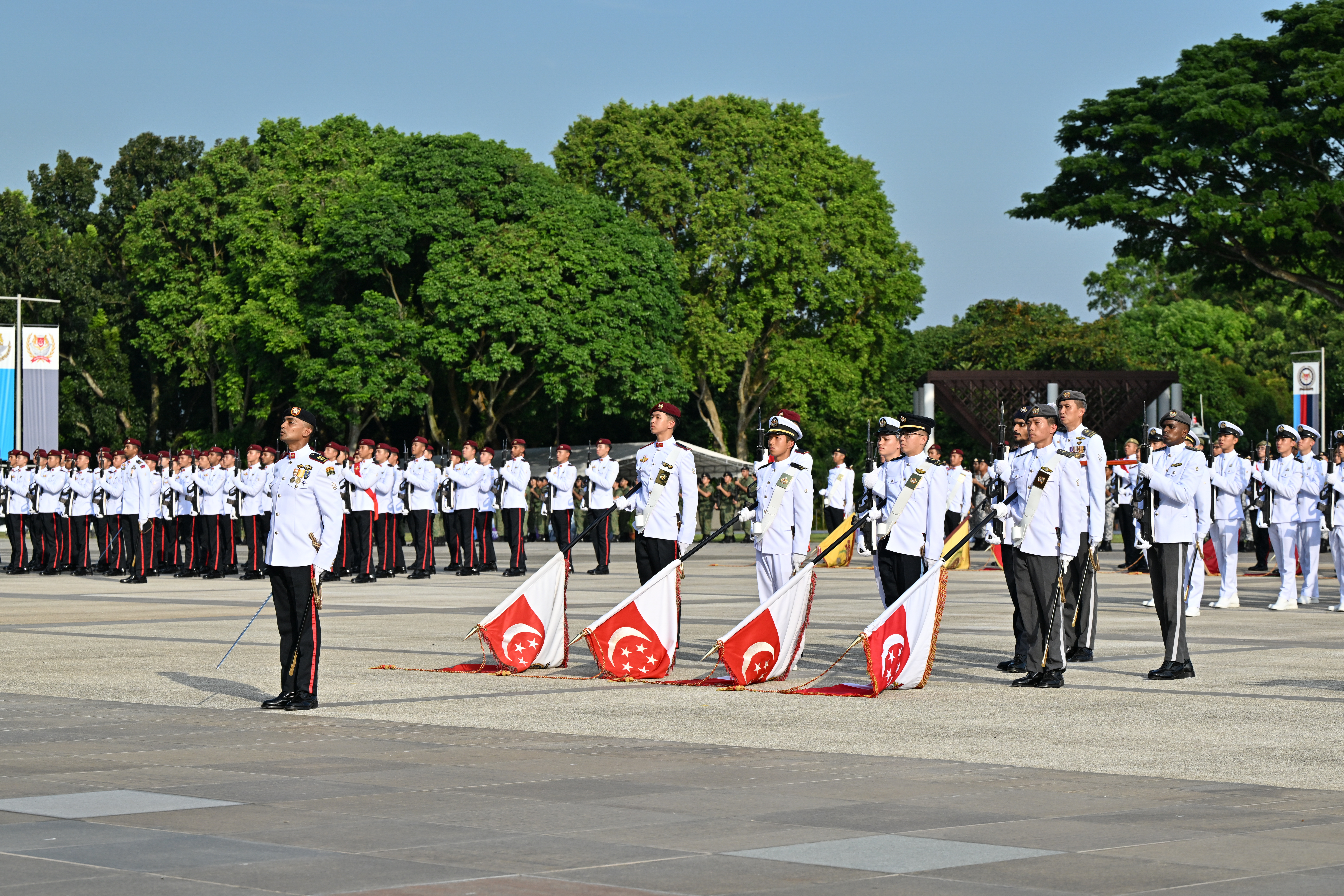
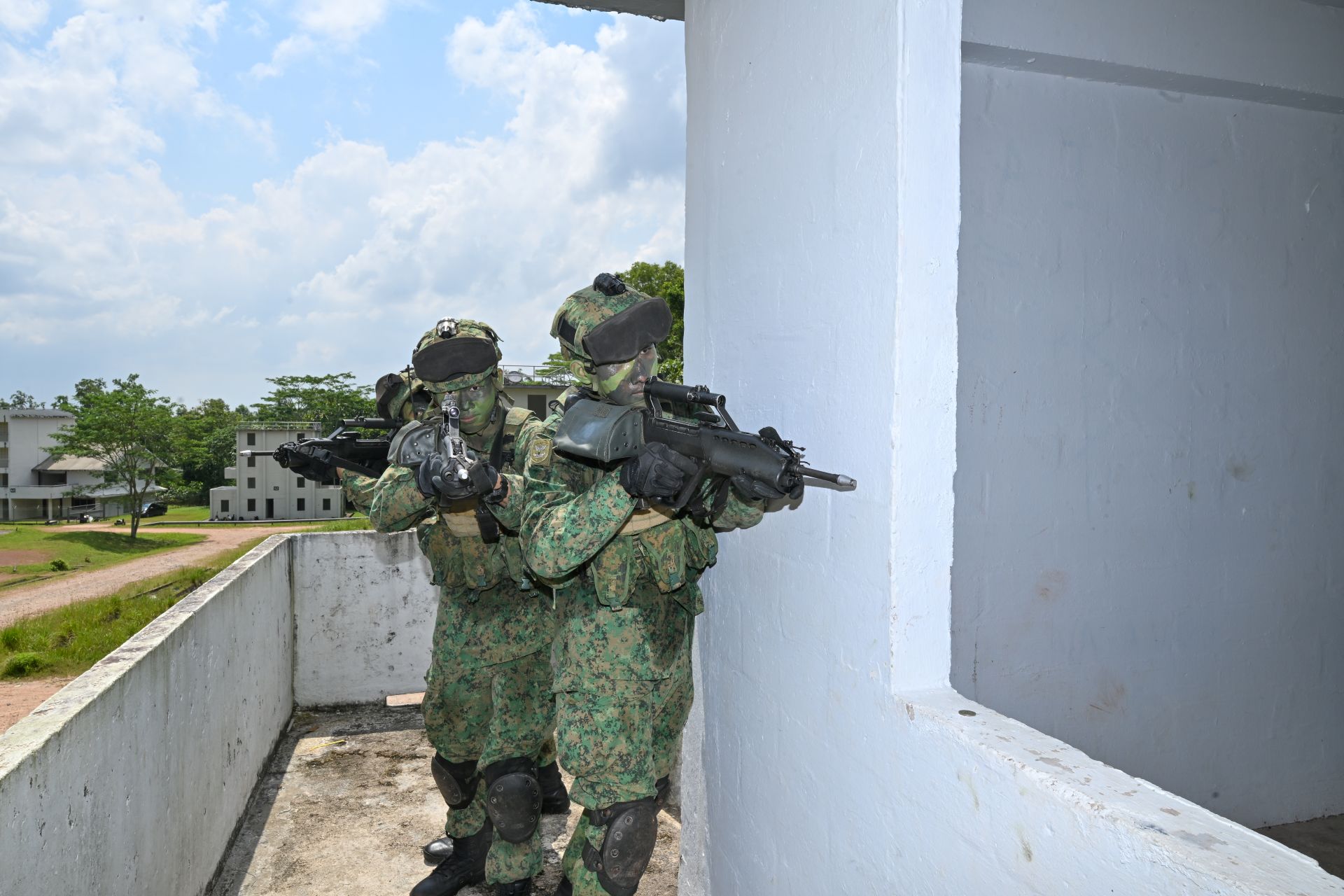
.jpg?sfvrsn=b5383902_1)
.jpg?sfvrsn=4eb1b86e_1)
